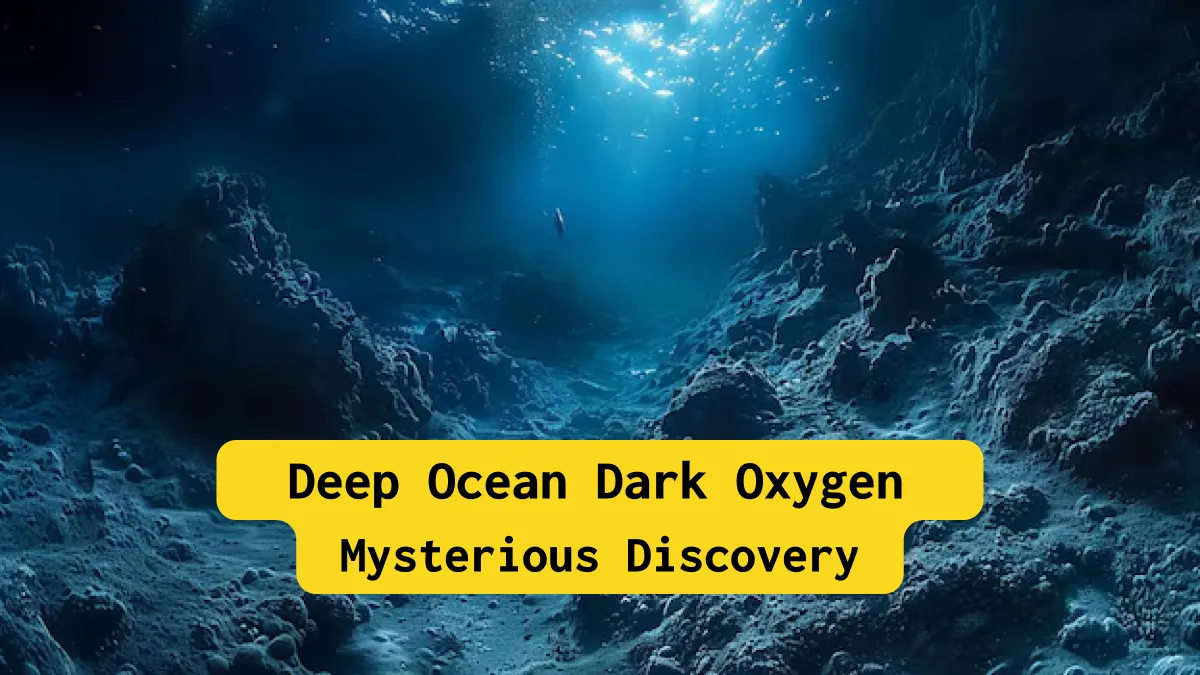Scientists have made an exciting discovery in the deep ocean. They found a new kind of oxygen. This oxygen is called “deep ocean dark oxygen.” It is different from the oxygen we breathe every day. This discovery opens up many new questions about the ocean.
What is Deep Ocean Dark Oxygen?
Deep ocean dark oxygen is found in the deepest parts of the ocean. These areas are very dark and cold. Scientists did not expect to find oxygen here. They were surprised when they did. This oxygen is special because it exists in places with no light. Usually, oxygen is produced by plants and algae using sunlight. But in the deep ocean, there is no light. So, where does this oxygen come from?
How Was It Discovered?
The discovery was made by a team of marine biologists. They were exploring the deep ocean using a special submarine. This submarine can go very deep, where no human can go without protection. They collected water samples from different depths. When they analyzed these samples, they found oxygen in them. This was unexpected. They did many tests to confirm their findings.
Why is This Important?
This discovery is very important for many reasons. First, it changes what we know about the ocean. It shows that the deep ocean has secrets we still do not understand. Second, it could help us learn more about life in extreme conditions. There are creatures in the deep ocean that rely on this oxygen. Understanding how they survive can teach us more about life on Earth and possibly other planets. Finally, it can impact our understanding of climate change. The ocean plays a big role in absorbing carbon dioxide. Knowing more about oxygen in the deep ocean can help us understand this process better.
Theories About the Source
Scientists have some theories about where this oxygen comes from. One theory is that it is produced by bacteria. These bacteria can live in extreme conditions. They may produce oxygen through chemical reactions. Another theory is that it comes from underwater volcanoes. These volcanoes release gases, including oxygen. However, more research is needed to confirm these theories.
Challenges in Research
Studying the deep ocean is very challenging. The conditions are extreme. It is very cold and dark. The pressure is also very high. This makes it difficult to explore and collect samples. Special equipment is needed, like submarines and deep-sea robots. These tools are expensive and hard to operate. Despite these challenges, scientists continue their research. They are determined to learn more about the deep ocean.
Future Research
The discovery of deep ocean dark oxygen is just the beginning. Scientists plan to do more research. They want to understand how this oxygen is produced. They also want to know how it affects the creatures living there. Future research will involve more deep-sea explorations. Scientists will use advanced technology to study the ocean floor. They will also collaborate with experts from other fields, like chemistry and geology. Together, they hope to unlock more secrets of the deep ocean.
Conclusion
The discovery of deep ocean dark oxygen is a breakthrough in marine science. It shows that the ocean still has many mysteries. This oxygen, found in the darkest and deepest parts of the ocean, challenges our understanding of marine life and the Earth’s ecosystem. As scientists continue their research, we can expect to learn even more about the fascinating world beneath the ocean’s surface. This discovery is a reminder of the importance of exploring and studying our planet’s last great frontier: the deep ocean.
